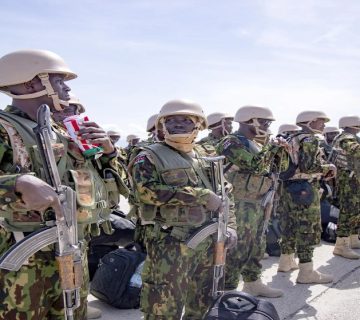‘Jihad’ is a value-laden term that has often been misconstrued both by the media and violent extremists alike around the globe. The term jihad has so often been overused incorrectly by the media, terrorist organizations, as well as sections of Muslims that it has lost its correct foundational meaning. But what is the correct definition of Jihad and why has it lost its essence? Like any religious phraseology, terms are bound to have vastly different interpretations depending on context.
Jihad is an Arabic term that simply means struggle or exerted effort. From the Quran, there are two types of Jihad: the lesser Jihad and greater Jihad. The lesser Jihad is defined as a defensive war and battle to protect one’s land, while the greater Jihad, the most important of the two, is the struggle for self-improvement and submission to Allah. Greater Jihad is the most difficult as it essentially goes against one’s ego, selfishness, and greed. The lesser Jihad is what has dominated the narrative and which is often misused by terrorists to justify the killing of civilians and destruction of institutions in the 21st Century world. On his return from battle, the Prophet SAW noted “we returned from the lesser Jihād to the greater Jihād of the person against his own self” (Bayhaqī).
Over the last three decades, the illegitimate Jihad – which entails deliberate misinterpretation of the concept of wage war – has increasingly become popular, especially among terrorists such as Al-Qaeda, DAESH and Al-Shabab, who have used the earliest of the Quranic verses to justify their atrocities. The Quran says: “Leave is given to those who fight because they were wronged—surely God is able to help them—who were expelled from their homes wrongfully for saying, ‘Our Lord is God” (22:39–40).
Unfortunately, violent extremists have continued to use Islam for their indoctrination basing their arguments on the Quran and hadith. It is imperative to note that the Quran does mention how and the conditions under which the lesser jihad can take place. Indeed, some of the conventions that guide the conduct of the war in the Quran have been largely adopted by the Geneva Conventions. It is revealed in the Quran that “Fight for the sake of Allah those that fight against you but do not attack them first. Allah does not love aggressors.” The earliest verses in the Quran illustrate that killing anyone is forbidden and that peace is the norm, “if your enemy inclines toward peace, then you too should seek peace and put your trust in God” (8:61).
Islam has provided detailed guidelines and regulations regarding the conduct of war and the ‘lesser jihad’, but terrorist groups and individuals have risen up to challenge political systems, and terrorize populations across nations where they discriminately kill innocent people. More often, they portray themselves as the “true believers” struggling against repressive regimes and in the midst of a polytheist (jahiliyyah) society.
The paradoxical growth in how Jihad is defined by extremist and what Islam is. This has increased due to the onset of technology and the way terrorist crimes are widely publicized. The popularity of the term has been influenced by the wrong people, who continue to spread the negative perceptions of Jihad. Jihad is against enmity, not a difference of religion as ’Islam has never ordered killing under the banner of disbelief, whoever wills let them believe and whoever wills let them disbelieve.” Qur’an (18:29). The key lesson is that the important and greater Jihad has been forgotten and the only Jihad is the one exemplified by the extremists’ organizations. It is time that the true believers demystify the term and change the public narrative by showing non-Muslims the broader meaning of the true Jihad ranges from treating parents kindly, being on the path of seeking education, and being beneficial to humanity generally.
Ruwaida is a Programs Officer at BRAVE (Building Resilience Against Violent Extremism)



